About this course
Excellent research opportunities await at the Liverpool School of Art and Design, enabling you to work at the forefront of developments with leading experts.
- Study full or part-time according to your other commitments
- Choose from a wide range of subject areas (see Details tab for more information)
- Complete your research degree (MPhil/PhD) in a Faculty known for its internationally-acclaimed research
- Explore scholarship opportunities
- Benefit from expert supervision and researcher training
- Enjoy excellent facilities and great employment connections
The programme route you undertake will depend on your qualifications and experience.
You can study for an MPhil / PhD full or part-time over two to seven years.
Liverpool Business School at Liverpool John Moores University is a member of AACSB International – The Association to Advance Collegiate Schools of Business.
AACSB International is a global association of leaders in education and business dedicated to supporting and advancing quality business education worldwide. Through membership, accreditation, research, thought leadership, professional development, and advocacy, AACSB partners with over 1,500 organizations, from more than 90 countries globally. Membership or participation in the Global Education Alliance does not imply accreditation.
Course modules
Discover the building blocks of your programme
Discover excellent postgraduate research opportunities at the Liverpool School of Art and Design where practice-led research enables you to articulate your own practice and explore contemporary developments.
Liverpool School of Art and Design is organised around strong disciplinary cultures, within a dynamic environment that supports interaction and debate between staff and students within and across subject areas.
The School conducts internationally important research which informs student learning. In the 2014 REF, 85% of research submitted by Art and Design: History, Practice and Theory at LJMU was recognised internationally or considered internationally excellent. This research helps ensure our learning is positioned at the leading edge of developments in the field and that you have an opportunity to study alongside leading experts.
Research is organised thematically to bring disciplines together and exploit their methods, addressing issues with broader cultural significance. We have significant research expertise in: the History of Art, Exhibition Studies,
Further guidance on modules
Modules are designated core or optional in accordance with professional body requirements, as applicable, and LJMU’s Academic Framework Regulations. Whilst you are required to study core modules, optional modules provide you with an element of choice. Their availability may vary and will be subject to meeting minimum student numbers.
Where changes to modules are necessary these will be communicated as appropriate.
Your Learning Experience
An insight into teaching on your course
To complement your research, specific training needs will be identified on an individual basis. You can study topics such as:
- Advanced Presentation Skills
- Applying for Ethical Approval
- How to be an Effective Researcher
- Poster Presentation/Design
- Postgraduate Employability Skills
- Project Management
- Writing Skills including Creative Planning for Writing your Thesis
- Surviving the Viva
- Speed Reading
How learning is monitored on your programme
To cater for the wide-ranging content of our courses and the varied learning preferences of our students, we offer a range of assessment methods on each programme.
Where you will study
What you can expect from your School
The programme is based in the Liverpool School of Art and Design’s John Lennon Art and Design Building, a purpose-built facility in the Mount Pleasant Campus, which brings together the varied disciplines studied at the School.
Career paths
Further your career prospects
LJMU has an excellent employability record with 96% (HESA 2018) of our postgraduates in work or further study six months after graduation. Our applied learning techniques and strong industry connections ensure our students are fully prepared for the workplace on graduation and understand how to apply their knowledge in a real world context.
Studying for a postgraduate research degree enhances your employability in a number of ways.
As well as enabling you to focus on your specific areas of interest and expand your subject knowledge ready for employment in your chosen sector, a postgraduate research qualification enables you to take charge of your career path by demonstrating your contribution to an area of knowledge. It enhances your self-confidence and showcases your ability to work independently and ‘go it alone’.
According to a report by the Higher Education Statistics Agency (HESA), more than a quarter of graduates felt that their employment prospects were increased by their PG qualification. And when it comes to earnings, those with a postgrad qualification have been shown to earn an average of 24% more than those who leave education with an undergraduate degree.
Some postgraduate research students are already in full-time employment when they begin their studies, whilst others are recent graduates looking to extend their research capabilities and subject expertise.
A good proportion of our students return to their existing roles with enhanced career prospects, others move on to further study or take up teaching roles in educational establishments.
Fees and funding
How to fund your postgraduate research
Securing funding can be one of the main hurdles you face when considering postgraduate research. However, help is available. LJMU has a team of fees and funding experts who can offer advice based on your personal circumstances. You can contact them on 0151 231 3153/3154 or via studentadvice@ljmu.ac.uk
You may also wish to contact the Liverpool School of Art and Design direct about locally available funding opportunities.
Entry requirements
You will need:
- Minimum of a 2:1 honours undergraduate degree and a Masters degree with a research dissertation in a relevant subject.
- In exceptional circumstances we may consider applicants without a Masters degree based on the level of research training completed in their undergraduate degree programme and any subsequent research work.
- We also welcome applications from those with non-standard qualifications who can demonstrate knowledge, experience, and skills developed in the workplace or other setting relevant to the programme of research. If you do not hold the standard academic entry requirements, please use your personal statement to provide further details. Non-standard applications will be considered by the Admissions Tutor(s) on a case-by-case basis.
Additional information:
- IELTS 6.5 minimum 5.5 in each component)
- 58-64 (minimum 51 in each component for UKVI purposes)
- RPL is accepted on this programme
- If you have any specific queries, please contact apsadmissions@ljmu.ac.uk
How to apply
Securing your place at LJMU
Your university life
From accommodation and academic support to clubs and societies. Find out what LJMU has to offer.
Talk to our students
Connect with a current LJMU student for advice and guidance on university life, courses and more.
See what our students are saying
At LJMU we want you to know you’re making the right choice by studying with us. You can see what our students are saying about their experience with us through their reviews on the following websites:
Related Links
News and views
Browse through the latest news and stories from the university
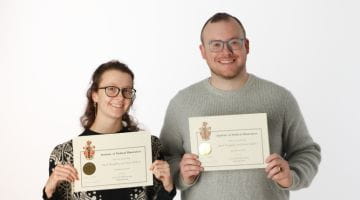
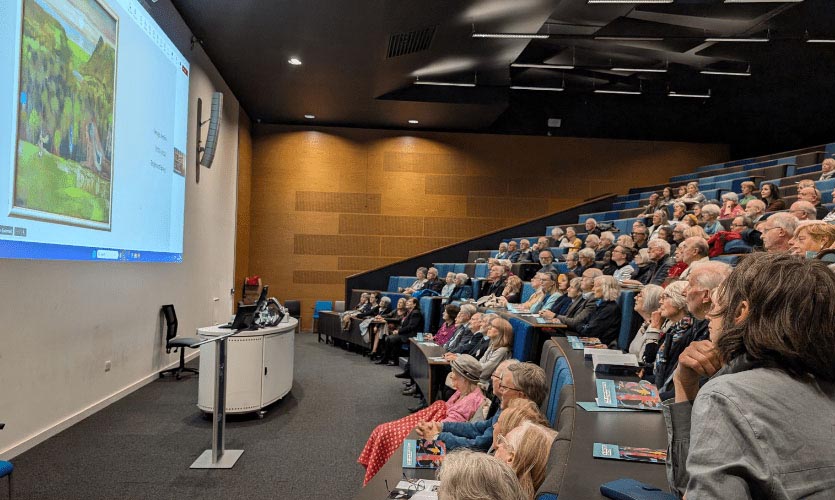
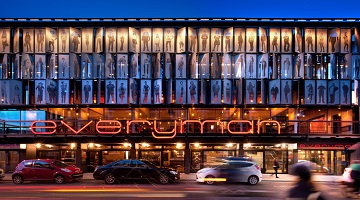

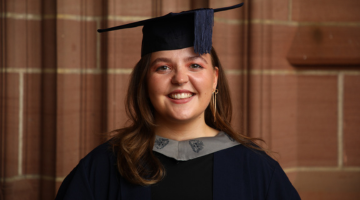
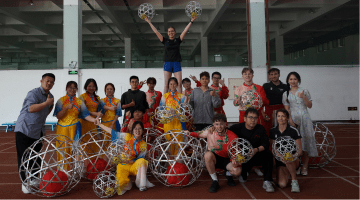

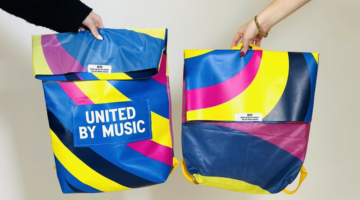

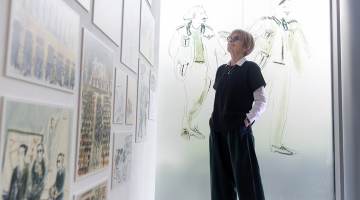
The University reserves the right to withdraw or make alterations to a course and facilities if necessary; this may be because such changes are deemed to be beneficial to students, are minor in nature and unlikely to impact negatively upon students or become necessary due to circumstances beyond the control of the University. Where this does happen, the University operates a policy of consultation, advice and support to all enrolled students affected by the proposed change to their course or module.










